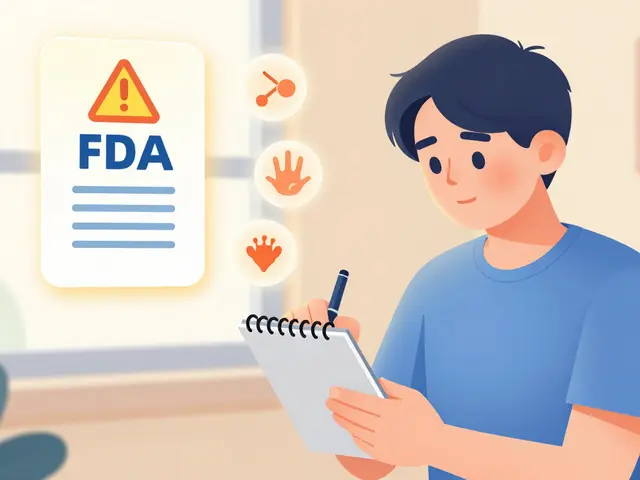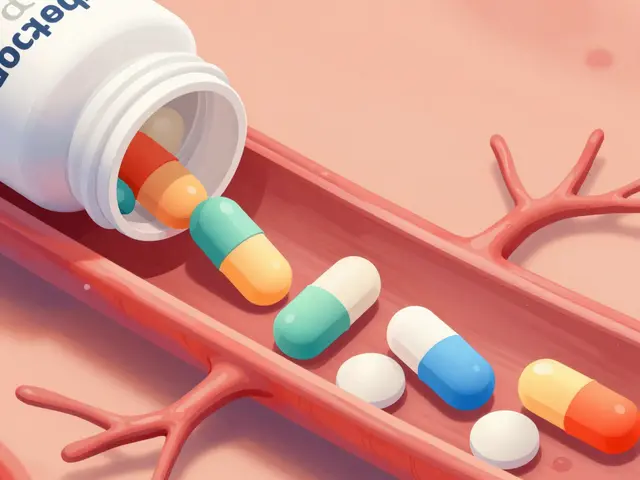Dentist's Perspective: What Your Mouth Says About Medicines and Health
I’m a dentist and I talk to patients about medicines and their mouth every day. Your teeth and gums often show side effects before the rest of your body does. If you’re on blood thinners, antidepressants, diabetes drugs, or steroids, your oral health can change fast. Here’s practical, useful advice you can use right away.
Bleeding during cleanings is the most common concern. If you take anticoagulants like warfarin or newer blood thinners, tell your dentist before any procedure. Stopping these drugs without a doctor’s okay is risky, but we might alter the plan: do smaller procedures, use local hemostatic agents, or ask your physician about bridging. Simple communication prevents trouble.
Medication side effects that show in the mouth
Dry mouth is common with many meds — antihistamines, some antidepressants, blood pressure drugs. Less saliva means more cavities and bad breath. Drink water, use sugar-free gums or saliva substitutes, and ask your dentist about fluoride varnish to protect enamel. If dry mouth is severe, your provider may change medications.
Another issue is oral thrush, often seen with inhaled steroids or after antibiotics. White patches that scrape off and leave red skin are classic. Rinsing the mouth after inhaler use and finishing prescribed antifungals helps. If fluconazole isn’t working or you want alternatives, your dentist or doctor can suggest topical nystatin or other treatments based on the cause.
Safe medicine use around dental care
NSAIDs like ibuprofen or ketorolac (Toradol) usually help with dental pain, but discuss this if you have ulcers, kidney disease, or take blood thinners. Antibiotics for dental infections should be used when needed — not as prevention for every ache. For heart valve issues or certain implants, we still follow antibiotic prophylaxis guidelines; ask us if you’re unsure.
Buying drugs online? Be careful. Not all pharmacies follow safety rules. Use accredited sites, check reviews, and verify prescriptions. If you find cheaper inhalers, sleep meds, or antibiotics online, run them by your dentist or physician before use; counterfeit or incorrect doses can cause oral problems or interact with dental treatment.
Routine dental visits let us catch problems early. Tell us your full medication list, including supplements like herbal remedies. Some herbs can increase bleeding or interact with pain meds. Bring a list, update it every visit, and mention any recent hospital stays or changes in health.
Want a quick checklist before a dental procedure? 1) Bring your medication list. 2) Tell us about blood thinners, heart conditions, or diabetes. 3) Ask whether to keep or pause medicines and who will advise you. 4) Plan for extra saliva care if you’re on dry-mouth drugs.
Good dental care is team work between you, your dentist, and your doctor. Small steps—clear communication, simple daily habits, and smart medicine choices—protect your smile and overall health.
If a dental issue starts after a new drug, ask both prescriber and dentist. Quick action often prevents bigger procedures and costs later. Keep records handy and revisit yearly.
As a dentist, I've seen many patients seeking relief from dental pain, and one effective solution I often recommend is Flurbiprofen. This non-steroidal anti-inflammatory drug (NSAID) has proven to be successful in reducing inflammation and providing pain relief for various dental issues, such as toothaches and postoperative pain. Additionally, Flurbiprofen has fewer side effects compared to other NSAIDs, making it a safer option for many patients. Furthermore, it's easily accessible as it's available over-the-counter or with a prescription at a higher dosage. Overall, Flurbiprofen is a reliable choice for managing dental pain, but it's always essential to consult your dentist before taking any medication.



